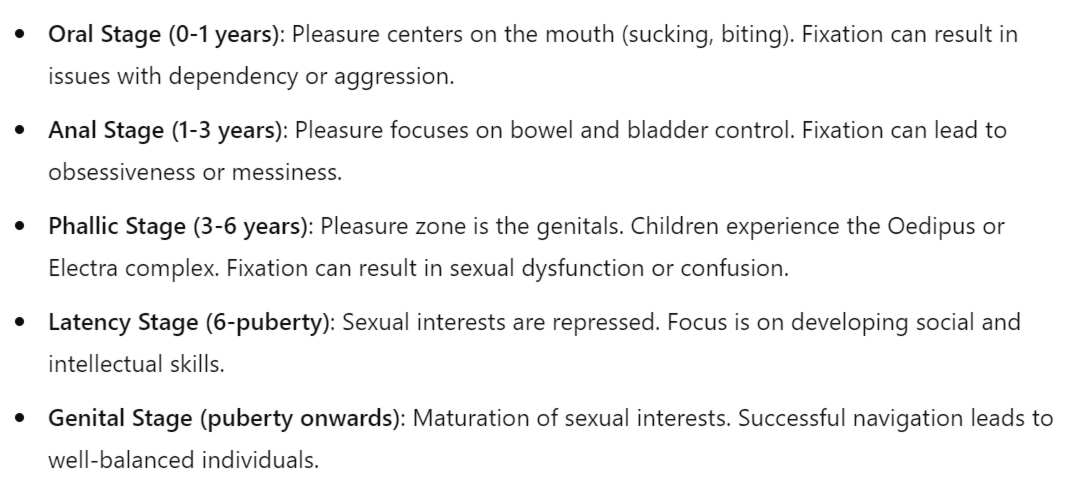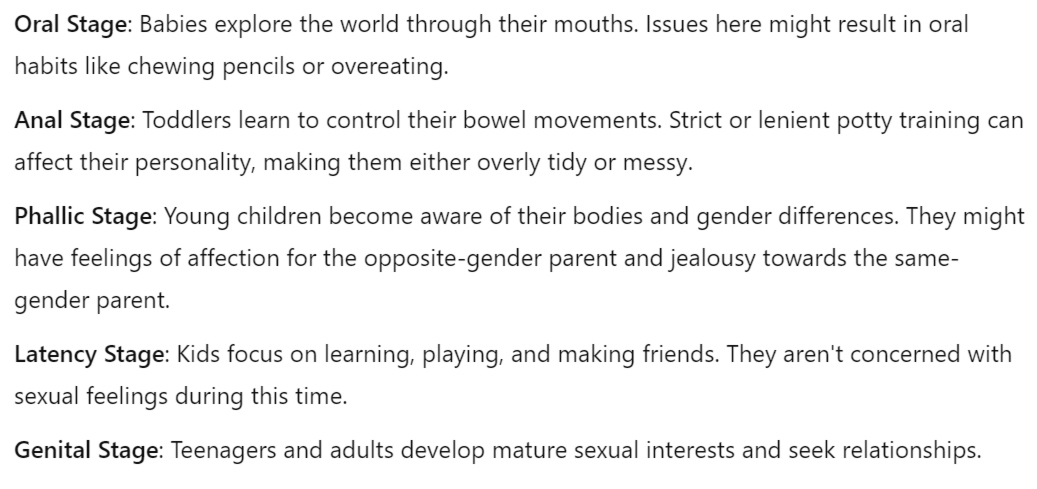Psychology: Psychodynamic approach with Sheeraz
The psychodynamic approach, founded by Sigmund Freud, is a significant perspective in psychology that emphasizes the influence of the unconscious mind on behaviour.
Unconscious Mind: Freud believed that much of our behaviour is driven by unconscious processes. This part of the mind contains thoughts, memories, and desires that are not accessible to conscious awareness but still influence our actions.
Id: The Id operates on the pleasure principle, seeking immediate gratification. It would urge you to go into the shop and buy a cake to satisfy your hunger immediately, without considering any consequences like cost, health, or diet.
Example: "Go buy that cake now! You're starving, and it looks delicious!"
Ego: The Ego operates on the reality principle. It would consider the immediate desire to eat but also weigh it against practical considerations like your budget, health goals, or time constraints.
Example: "I am hungry, but I need to check if I have enough money and if eating a cake fits my diet. Maybe I can find something healthier and cheaper nearby."
Superego: The Superego represents internalized moral standards and ideals. It would consider whether indulging in the cake aligns with your long-term health goals or ethical considerations like dieting or spending wisely.
Example: "You should not buy the cake. Remember your commitment to eating healthy and saving money. You can wait until you get home to have a proper meal."
Psychosexual Stages of Development
Freud proposed that personality develops through a series of childhood stages where the pleasure-seeking energies of the id become focused on certain erogenous areas. Each stage involves conflicts that can have lasting effects on an individual's personality if not resolved properly:


Oral Fixation: Over-dependence on oral activities for comfort.
Anal Retentive: Excessive need for order and control.
Anal Expulsive: Lack of self-discipline and messy behavior.
Phallic Fixation: Issues with sexual identity and relationships.
Latency: Past conflicts influencing social and intellectual development.
Genital: Difficulties in forming mature relationships.
Each stage builds upon the previous one, and unresolved conflicts can lead to specific personality traits and behaviours that reflect the fixation of that stage. Addressing these issues through therapy or personal growth can help resolve these fixations and lead to healthier adult functioning.